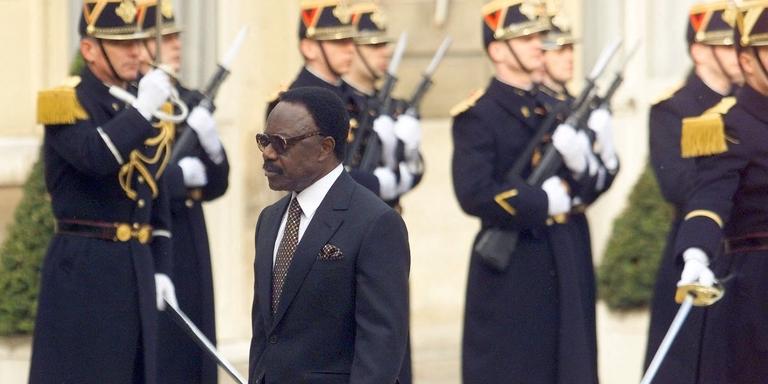


Gabon coup: The Bongo dynasty, a French story
Long ReadFrom the father Omar to the son Ali, the family that ruled Gabon for 55 years maintained a special relationship with France. But ties between the former colonial power and the Central African country, long a bastion of French influence, became more distant in the 2000s.
There are many lessons to be drawn from the short video sequence in which the Gabonese president appears just hours after being removed from office by military putschists on the morning of Wednesday, August 30. Ali Bongo Ondimba, 64, looking emaciated, his body fluttering in a blue tunic, sits in an armchair in the living room of La Sablière, his residence in Libreville, where he is under house arrest. His voice quavers slightly, his gaze oblique, floating a little in the vague. The man is weakened. Not so much because of the surprise coup the previous night, when the military challenged the announcement of his presidential victory, nullifying the results and seizing power, but because of the consequences of his severe stroke in 2018, the scars he still bears.
The surprise of this video lies somewhere else: in the language used by the president. In English, Bongo says: "I am the president of Gabon, Ali Bongo, and I'm sending a message to all the friends we have around the world to make some noise. Make some noise, because the people here have arrested me and my family. My son is somewhere, my wife is somewhere else, and I'm at the residence." While Gabon joined the Commonwealth organization in June last year, French remains the country's official language and the one Ali Bongo uses daily.
Was the choice anecdotal or deliberate? At the very least, the language chosen illustrates the extent to which relations between France and Gabon have become strained. The former colony, which at the time of African independence in 1960 would have preferred to remain in the French fold as an overseas territory, has become a cumbersome ally for France's diplomacy in Africa.
Oil and manganese
Initially, one man had forged unparalleled proximity between the two countries: Albert-Bernard Bongo. The man who would be known as El Hadj Omar Bongo after his conversion to Islam in 1973 owes his political rise to France, whose paratroopers he met up close in 1964. At the time, Paris was intervening in Libreville to save President Léon Mba, who had been installed as head of the country following independence, from an attempted coup. The French authorities got to know the young Bongo, born in 1935, the head of Mba's cabinet. So when Mba, who had been ill for many years, died in Paris in 1967, the former colonial power knew exactly who it wanted as a replacement. "He would have loved to have been born earlier to become a French minister, like Léopold Sédar Senghor before Senegal's independence," said a former French diplomat who worked with him.
You have 69% of this article left to read. The rest is for subscribers only.
